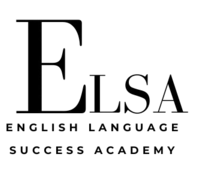In the world of business, your ability to engage in small talk and network effectively can be just as important as your technical skills. Whether you’re at a conference, a business dinner, or a casual office gathering, mastering the art of small talk can open doors to new opportunities, strengthen professional relationships, and enhance your career prospects. This article explores key strategies for initiating conversations, discussing safe topics, and smoothly transitioning to business matters.
Conversation Starters and Icebreakers
Breaking the ice in a professional setting can be daunting, but with the right approach, it can become second nature. Here are some effective conversation starters and icebreakers:
1. “What brings you to this event?” – This open-ended question allows the other person to share their interests or goals.
2. “I couldn’t help but notice your [interesting item]. Is there a story behind it?” – This works well if the person is wearing or carrying something unique.
3. “I’m [Your Name] from [Your Company]. What’s your connection to [the event/host company]?” – This introduces yourself while inviting the other person to share about themselves.
4. “Have you attended this event before? What did you think of it?” – This works well for recurring events and can lead to discussions about shared experiences.
5. “I just heard an interesting talk about [topic]. What are your thoughts on that?” – This is great for conferences or seminars where you can reference shared experiences.
6. “What’s the most interesting project you’re working on right now?” – This allows the other person to share their passions and accomplishments.
Remember, the key to a good conversation starter is to be genuine, show interest in the other person, and create an opening for them to share.
Discussing Safe Topics: Weather, Sports, and Travel
Once you’ve broken the ice, it’s important to keep the conversation flowing with safe, neutral topics. Here are some strategies for discussing common small talk subjects:
Weather:
– “I hear we’re in for some beautiful weather this weekend. Any plans to enjoy it?”
– “How are you finding the climate here compared to [their home location]?”
While weather is a classic small talk topic, try to use it as a springboard to more engaging conversations.
Sports:
– “Did you catch the [recent sports event] last night? What did you think of [specific play or outcome]?”
– “I noticed you’re wearing a [team] pin. Are you a big fan?”
Even if you’re not a sports enthusiast, having a basic awareness of major sporting events can be helpful in business settings.
Travel:
– “Have you had the chance to explore [local area] yet? I’d be happy to recommend some great spots.”
– “I noticed from your accent that you might not be from around here. Where are you visiting from?”
– “What’s the most interesting place you’ve traveled for work?”
Travel discussions can lead to sharing of experiences and potentially uncover common interests.
Remember, the goal is to find common ground and build rapport. Listen actively and look for opportunities to delve deeper into topics that seem to interest your conversation partner.
Transitioning from Small Talk to Business Matters
While small talk is important for building relationships, in a business context, you’ll often need to transition to more substantial topics. Here are some techniques for smoothly shifting the conversation:
1. Use a bridge phrase: “Speaking of [previous topic], that reminds me of a challenge we’re facing in our industry…”
2. Reference a shared experience: “Earlier, you mentioned [topic]. That’s actually related to the project I’m currently working on…”
3. Ask for their professional opinion: “Since you have experience in [their field], I’d be interested to hear your thoughts on [business matter].”
4. Introduce a current event relevant to your industry: “Have you been following the recent developments in [industry news]? How do you think that will impact businesses like ours?”
5. Be direct, but polite: “I’ve really enjoyed our chat. If you don’t mind, I’d love to discuss [business topic] with you.”
The key is to make the transition feel natural and not abrupt. Always be respectful of the other person’s time and interest level.
Cultural Considerations in Business Small Talk
When networking in an international context, be aware that small talk norms can vary significantly across cultures:
– In some cultures, small talk is essential before any business discussion, while in others, getting straight to the point is preferred.
– Topics considered “safe” can vary. For example, discussing politics might be acceptable in some cultures but taboo in others.
– The amount of personal information shared during small talk can differ widely between cultures.
When in doubt, observe others, follow their lead, and when appropriate, ask politely about local customs.
Elsa Says:
Mastering the art of business small talk and networking is a valuable skill that can significantly enhance your professional relationships and career prospects. By using effective conversation starters, engaging in safe topics like weather, sports, and travel, and smoothly transitioning to business matters, you can create meaningful connections in any professional setting. Remember, the key to successful networking is genuine interest in others, active listening, and the ability to find common ground. Practice these skills regularly, be aware of cultural differences, and always aim to leave a positive impression. With time and practice, you’ll find that networking becomes not just a professional necessity, but an enjoyable part of your business interactions.



